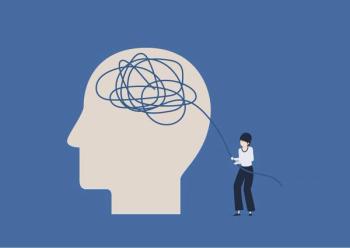
- Vol 38, Issue 10
How Many Lives Have Been Saved by COVID-19 Vaccinations?
COVID-19 vaccination efforts are making a big difference, with thousands of lives saved.
MEDICAL ECONOMICS
According to a
The researchers found that COVID-19 vaccines prevented more than 139,000 deaths during the first 5 months they were available. Although 570,000 Americans died due to COVID-19 through the study period, the researchers’ model projected that there would have been 709,000 deaths without the vaccine.
“The researchers found that COVID-19 vaccines prevented more than 139,000 deaths during the first 5 months they were available.”
In addition, the investigators estimated that the economic value of saving these lives was between $625 billion and $1.4 trillion.
The reduction in deaths varied across states. New York led, with vaccinations resulting in an estimated 11.7 fewer COVID-19 deaths per 10,000 people. Hawaii saw the smallest reduction, with 1.1 fewer deaths per 10,000.
“This study brings into focus the dramatic success of the early months of the nation’s coronavirus vaccine rollout,” reported
The investigators noted, however, that the study had limitations, including an inability to distinguish between the role of vaccination and that of other factors—such as increases in natural immunity or social distancing policies—on the number of COVID-19 deaths.
These statistics are emerging as the nation gears up for another vaccination push: The federal government is considering third doses of the Pfizer and Moderna COVID-19 vaccines for Americans, to be taken about 8 months after their second dose.
Reportedly, this decision regarding a third dose came after Biden administration officials reviewed a wide array of data and concluded that the additional shots are needed to maintain immunity against COVID-19. As this issue was going to press, the administration was not yet recommending an additional dose for those who received the Johnson & Johnson vaccine; data are still under review.
This move comes as the Delta variant has driven up the numbers of COVID-19 infections across the country and has led to a rash of breakthrough infections among individuals who are already vaccinated.
The US Food and Drug Administration (FDA) has already expanded the emergency use authorization for the Pfizer and Moderna 2-dose vaccines to allow for a third dose to the estimated 3% of Americans, or about 9 million people, who have weakened immune systems. The vaccines are believed to be less effective in this group of people, but the initial hope was that widespread vaccinations, leading to herd immunity, would protect the immunocompromised population. However, as of August 25, just slightly more than half of eligible Americans—167.1 million—have been fully vaccinated. ❒
READ MORE AT
Articles in this issue
over 4 years ago
Facilitating Autism Diagnosisover 4 years ago
Incorporating Well-Being Into Child and Adolescent Psychiatryover 4 years ago
Screen Media Activity in Youth: Friend or Fiend?over 4 years ago
Supporting Youth: New Findings in Youth Depression and Beyondover 4 years ago
Traveling the Middle Road Between Skepticism and Scientismover 4 years ago
Prompts (for Doctors Who Write Poetry)over 4 years ago
Bipolar Depression: How Not to Miss the Diagnosisover 4 years ago
A Brain-Based Approach to Psychotherapyover 4 years ago
“I’m Not Ready to Die”Newsletter
Receive trusted psychiatric news, expert analysis, and clinical insights — subscribe today to support your practice and your patients.







